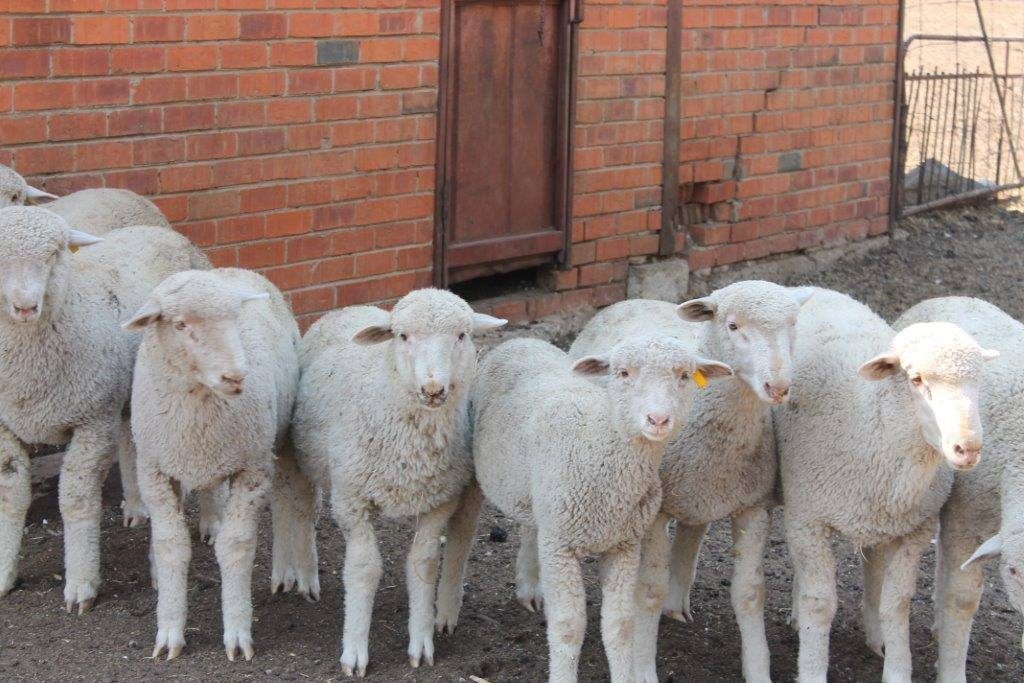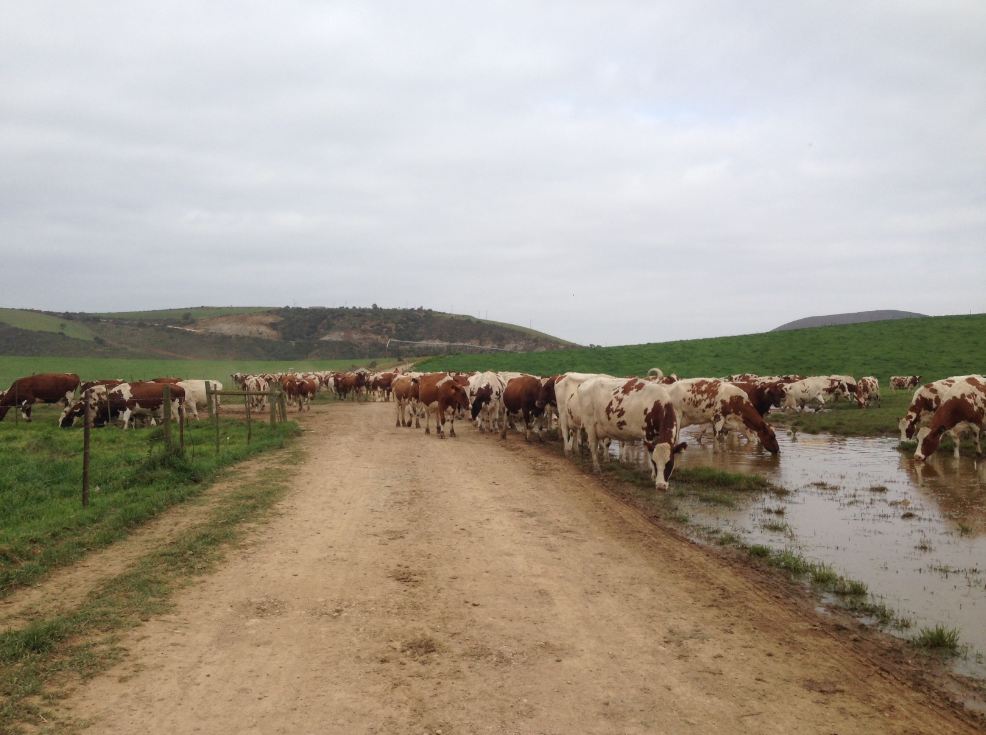Nuwe kommunikasiebeleid in VS in stryd teen veediefstal
28
January
’n Nuwe kommunikasiebeleid is geformuleer om die kopseer van veediefstal in die Vrystaat meer doeltreffend aan te spreek. Die Vrystaatse Rooivleisprodusente-organisasie (RPO), Nasionale Wolkwekersvereniging (NWKV) in die provinsie en Vrystaat Landbou (VL) het saamgespan om dit vir hul lede makliker te maak om te weet watter riglyne om te volg wanneer veediefstal-probleme ondervind word.
Elk van hulle vervul ’n spesifieke rol in die stryd teen veediefstal en dit is belangrik vir landbouers en ander om te weet wie om wanneer te kontak. Sodoende sal kommunikasie verbeter en kan probleme met groter sukses aangespreek word.
Rol van Veediefstalvoorkomingsforum
VL, die RPO én NWKV in die Vrystaat maak deel van die Vrystaatse Veediefstalvoorkomingsforum (VSVVF), wat help om doeltreffende maatreëls vir veeprodusente in plek te stel om diefstal te voorkom, uit. Neville Raath, Vise-voorsitter van die RPO Vrystaat, is die Voorsitter van die VSVVF, terwyl Herman Archer Voorsitter van die NWKV Vrystaat en Jakkals le Roux Voorsitter van VL se Landelike Veiligheidskomitee is.
“Die forum skenk saam met die Suid-Afrikaanse Polisiediens (SAPD), Suid-Afrikaanse Nasionale Weermag en Nasionale Vervolgingsgesag aandag aan reaktiewe veediefstal-aanmelding wat voorkoming daarvan beïnvloed én om die suksesvolle vervolging van veediefstalsake in howe binne die kriminele regstelsel te monitor en te verbeter,” sê Raath. Volgens hom is bewusmakingsveldtogte in die media, opleidingswerkswinkels om veeprodusente te bemagtig oor die identifikasie van diere en riglyne vir veediefstal-voorkoming alles deel van die VSVVF se werksaamhede. Dit sluit ook interaksie en besoeke aan landbougemeenskappe én die deurlopende monitering van veediefstal sake in.
“Die forum is ook deel van maandelikse vergaderings van die provinsiale prioriteitskomitee vir landelike veiligheid en vergaderings elke twee maande van die Border Safeguarding Forum met die SANW,” sê hy. By laasgenoemde word oorgrensprobleme, uitdagings en tekortkominge by die grens tussen Suid-Afrika en Lesotho, asook hoë misdaadgebiede en inligting oor toekomstige operasies, bespreek.
Raath sê die forum het ook ten doel om Veediefstal-inligtingsentrums by veral die voorste tien Vrystaatse veediefstalstasies tot stand te bring, waar alle aspekte hierbo vermeld ook gedesentraliseer word. Hier werk die VSVVF nou saam met die LUR vir Polisie, Paaie en Vervoer se sektretariaat vir oorgrensbeveiliging om Imbizo’s onder kommunale en opkomende landbouers te hou. “Opleiding en bewusmaking oor dieregesondheid, die merk van vee en voldoening aan wetgewing saam met die SAPD geniet dan spesifieke aandag.”
Probleme met ondersoeke
Die VSVVF het ’n pro forma saamgestel wat landbouers kan gebruik wanneer hulle nie met die ondersoek van sake deur die SAPD, en veral veediefstal-eenhede, tevrede is nie.
“Die vorm moet skriftelik voltooi word en navrae word gerig deur die kantoor van die RPO Vrystaat, spesifiek Carine Annandale (vrystaatrpo@vodamail.co.za), na die SAPD se provinsiale koördineerder van veediefstal-eenhede,” sê Raath. Terugvoer word dan gekry en aan die betrokke landbouer deurgegee.
Raath meld ook dat waar daar dringende intervensie nodig is, dit so op die vorm aangedui moet word. ’n Voorbeeld is waar die SAPD of die betrokke veediefstal-eenheid nog nie die misdaadtoneel besoek het nie, sodat skakeling met die SAPD kan geskied.
Wie om wanneer te kontak
Alle insidente en inligting oor die manifestasie van veediefstal moet aan Dr Jane Buys, Veiligheidsrisiko-analis van VL, deurgegee word. “Inligting oor voorvalle word gebruik in die opstel van maandelikse veiligheidsoorsigte wat ook aan die prioriteitskomitee van Landelike Veiligheid, onder leiding van die VSVVF, deurgegee word,” sê sy. Volgens haar behels dit die identifisering van hoë misdaadgebiede, asook versoeke vir gesamentlike operasies.
Buys is aangewys as die skakelpersoon namens die RPO, NWKV en VL met die media oor veediefstal-statistieke, toenames of afnames, die georganiseerdheid daarvan, asook die impak en omvang van die probleem in die Vrystaat. Sy sal ook alle navrae vir artikels vanaf akademici, die media en ander wat fokus op veediefstal hanteer.
Raath is aangewys as skakelpersoon namens die RPO Vrystaat met die media. Hy sal alle inligting oor hoëprofiel-sake oor veediefstal met die media kommunikeer. Verder kan daar ook oor daaglikse veediefstal-inligting in die provinsie met hom geskakel word.
“Hierdie riglyne sal aan lede van al die provinsiale organisasies, ook tydens VL se streekkongresse, gekommunikeer word om hulle in te lig wie om te skakel wanneer uitdagings oor veediefstal ervaar word en wat die kommunikasiekanale behels,” sê Raath.
New communication policy in FS in fight against livestock theft
A new communication policy has been formulated to address the headaches of livestock theft more effectively in the Free State. The Free State Red Meat Producers Organisation (RPO), National Wool Growers Association (NWGA) in the province and Free State Agriculture (FSA) have made it easier for their members to know which guidelines to follow when experiencing stock theft problems.
Each of them play a specific role in the fight against stock theft and it is important for farmers and others to know who to contact when. In this way communication will improve and problems can be addressed with greater success.
Role of Stock Theft Prevention Forum
FSA, the RPO and NWGA in the Free State are part of the Free State Stock Theft Prevention Forum (FSSTPF), which helps put effective measures in place for livestock producers to prevent theft. Neville Raath, Vice Chair of the Free State RPO, is the Chair of the FSSTPF, while Herman Archer is Chair of the Free State NWGA and Jakkals le Roux is the Chair of FSA’s Rural Safety Committee.
“The forum, together with the South African Police Service (SAPS), South African National Defence Force and National Prosecuting Authority, addresses reactive stock theft reporting that affects its prevention and to monitor and improve the successful prosecution of stock theft cases in courts within the criminal justice system,” says Raath. According to him, media awareness campaigns, training workshops to empower livestock producers on animal identification and guidelines for livestock theft are all part of the FSSTPF’s activities. It also includes interaction and visits to agricultural communities, as well as ongoing monitoring of stock theft cases.
“The forum is also part of monthly meetings of the provincial rural safety priority committee and meetings every two months of the Border Safeguarding Forum with the SANDF,” he says. The latter discusses cross-border problems, challenges and shortcomings at the South African and Lesotho border, as well as high crime areas and information on future operations.
Raath says the forum also aims to establish Stock Theft Information Centres at especially the top ten Free State stock theft stations, where all aspects mentioned above are also decentralized. Here, the FSSTPF works closely with the MEC for Police, Roads and Transport’s Secretariat for Cross Border Safety to host Imbizo’s among communal and emerging farmers. “Training and awareness about animal health, the marking of livestock and compliance with legislation with the SAPS then receive specific attention.”
Problems with investigations
The FSSTPF has compiled a pro forma that farmers can use when they are not satisfied with the investigation of the SAPS, and especially stock theft units.
“The form must be completed in writing and enquiries are made by the office of the Free State RPO, specifically Carine Annandale (vrystaatrpo@vodamail.co.za), to the SAPS’s provincial coordinator of stock theft units,” says Raath. Feedback is then obtained and passed on to the specific farmer.
Raath also states that where urgent intervention is needed, it should be indicated on the form. An example is where the SAPS or the relevant stock theft unit has not yet visited the crime scene, and contact should be made with the SAPS.
Who to contact when
All incidents and information about the manifestation of livestock theft must be communicated to Dr Jane Buys, FSA’s Safety and Risk Analyst. “Incident information is used in the preparation of monthly safety reviews, which are also communicated to the Rural Safety Priority Committee, led by the FSSTPF,” she says. According to her, this involves identifying high crime areas, as well as requests for joint operations.
Buys has been appointed the liaison on behalf of the RPO, NWGA and FSA with the media on stock theft statistics, increases or decreases, the organisation thereof, as well as the impact and extent of the problem in the Free State. She will also handle all enquiries for articles from academics, the media and others focusing on stock theft.
Raath was appointed liaison on behalf of the RPO Free State with the media. He will communicate all information on high profile cases of stock theft with the media. In addition, he can also be contacted about daily stock theft information in the province.
“These guidelines will be communicated to members of all the provincial organizations, including at FSA’s regional conferences, to inform them who to contact when facing challenges of stock theft and what the communication channels entail,” says Raath.




